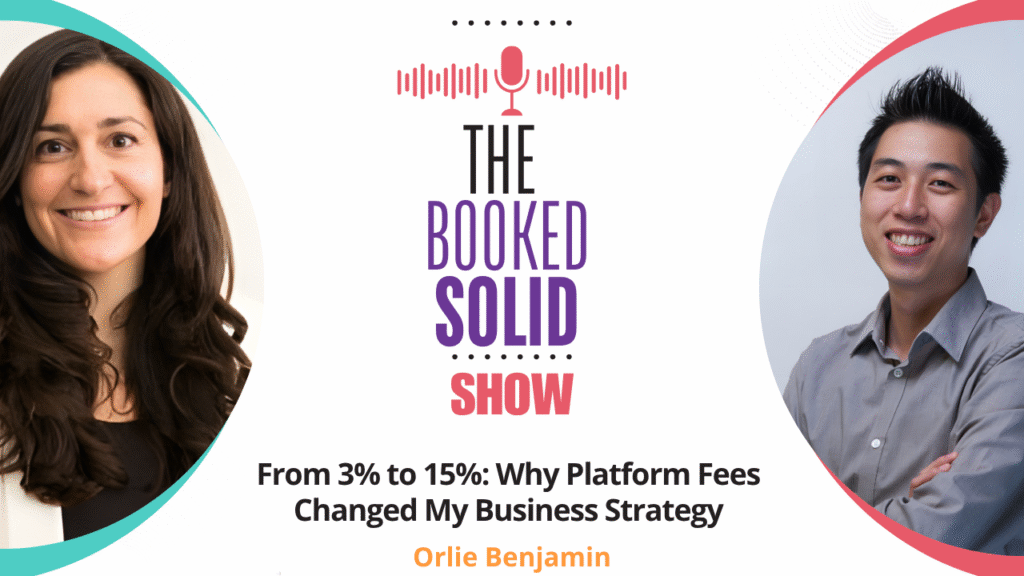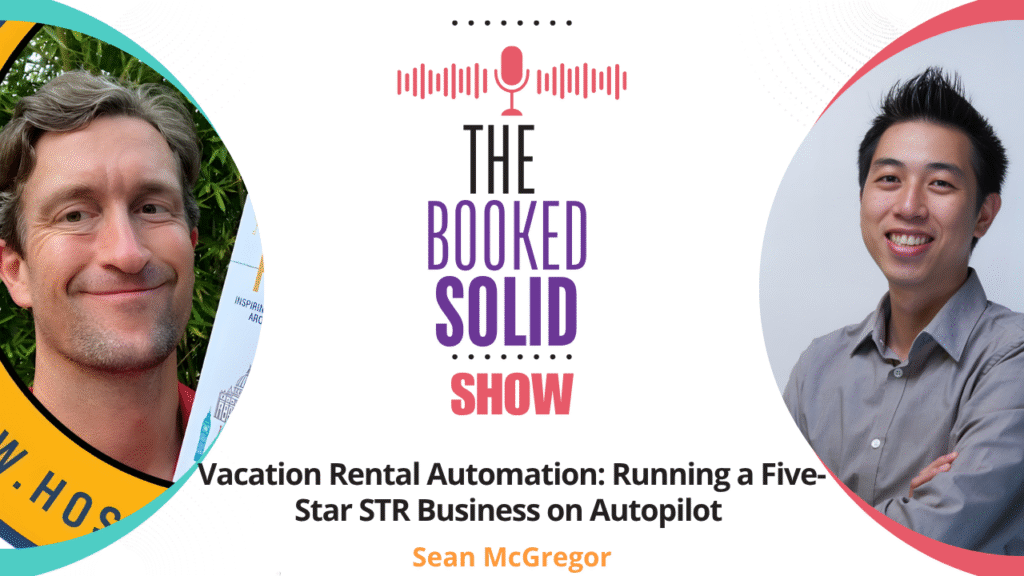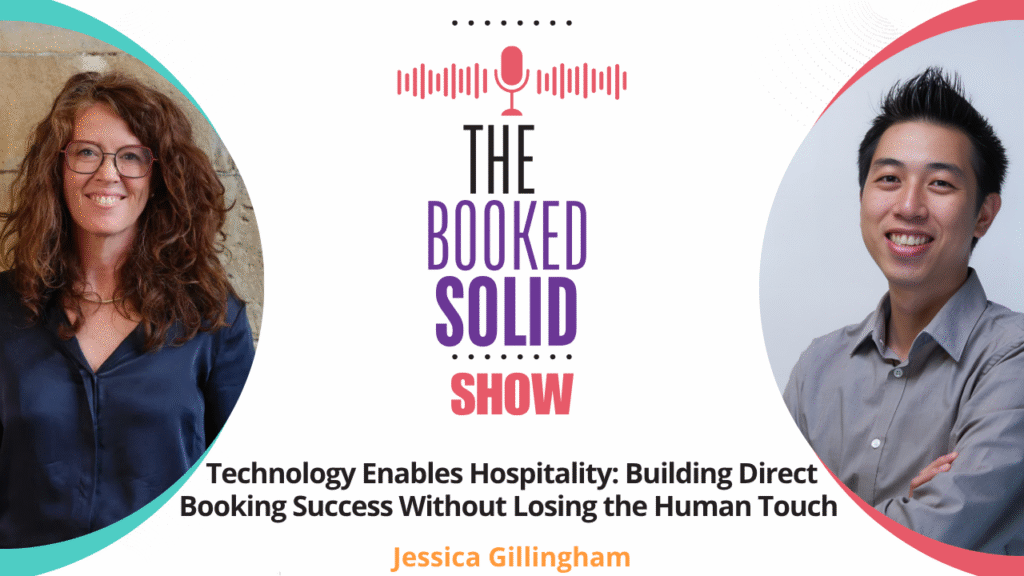From 1% to 30% Direct Bookings: Systems-Driven Approach to Scaling Short-Term Rentals with Harshad Lalan
From aerospace engineer to acquiring four boutique hotels in just 12 months—Harshad Lalan’s journey proves that systems thinking and strategic boldness can transform your short-term rental business. In this episode of the Booked Solid podcast, Harshad shares how he and his wife Ishita scaled from zero properties to a thriving portfolio by combining her design brilliance with his analytical systems approach. He reveals how they jumped from less than 1% direct bookings last year to over 30% this year, his framework for using AI to streamline everything from listing creation to hotel underwriting, and why surrounding yourself with the right people accelerates growth faster than any spreadsheet analysis ever could. Whether you’re just getting started or ready to scale aggressively, Harshad’s honest take on overcoming “analysis paralysis” and building delegatable systems will give you a new perspective on what’s possible. Summary and Highlights 👤 Meet Harshad Lalan Harshad Lalan is a hospitality entrepreneur, boutique hotel investor, and co-founder of 5 Seasons Homestays and Ishita Interiors alongside his wife, Ishita. With a professional background in aerospace engineering and systems design—plus experience as a licensed pilot—Harshad brings a unique analytical perspective to the short-term rental space. Together, the couple has built a portfolio of high-performing, amenity-rich properties across the U.S., transforming ordinary homes into what Harshad calls “Super Properties.” His engineering mindset drives everything from operational systems to guest experience optimization, while Ishita brings the creative soul that makes their properties stand out in competitive markets. Connect with Harshad: 🚀 The Journey: From One Property to Four Hotels in 12 Months Harshad’s path into short-term rentals wasn’t overnight success—it was methodical growth built on deliberate systems. Starting in 2017-2018, he and Ishita acquired just one property per year for the first two years. The process was cautious: Harshad spent nine months searching for their Destin, Florida property, meticulously checking ROI goals, distance from the beach, and amenities before pulling the trigger. By 2022, everything changed. With systems in place, confidence built through experience, and a team supporting operations, they accelerated dramatically. This year alone, they’re acquiring four boutique hotels—large investments that would have seemed impossible just a few years ago. What made the difference? According to Harshad, three critical shifts: Risk tolerance evolved. Early on, limited resources meant every decision carried enormous weight. Now, a diversified portfolio provides cushion for bolder moves. Experience compounds. Multiple iterations taught them what success looks like—and more importantly, what warning signs to catch early. Community accelerates growth. Joining a boutique hotel mastermind connected them with lending options, partners, and expertise that shortened their learning curve dramatically. As Harshad noted, the mastermind fee felt steep initially but proved to be the best investment they ever made. If you’re considering joining a mastermind or coaching community, Harshad’s experience validates that surrounding yourself with people who’ve already achieved what you’re pursuing can collapse years of trial and error into months. 📈 From Less Than 1% to 30% Direct Bookings Perhaps the most striking transformation in Harshad’s business this year has been his direct booking strategy. Last year, direct bookings accounted for less than 1% of revenue—essentially just the occasional repeat guest who happened to remember their website. This year? They’re sitting at 25-30% direct bookings. The shift required a complete mindset change. Rather than treating direct bookings as a passive bonus, Harshad built a cohesive strategy around two distinct approaches: Capturing OTA Traffic Through Brand Recognition Every listing title now follows a specific format: property name + “by 5 Seasons Homestays.” Instead of cramming amenities into the title like most hosts, Harshad prioritizes brand visibility. Here’s why this works: Airbnb titles become H1 headers on property pages, which means they get indexed by search engines. Over time, guests searching for unique property names or “5 Seasons Homestays” find the direct booking site instead of returning to Airbnb. The descriptions reinforce this branding—mentioning the management company name throughout. It’s subtle, but these small nudges add up. When guests do land on the direct booking website, they immediately see how much they’re saving. Right beneath the booking total, a direct comparison shows savings versus Airbnb pricing—often $700 or more. That visual confirmation removes hesitation. Acquiring New Guests Through Influencer Marketing The second strategy targets people who haven’t discovered them through OTAs at all. Harshad works with regional influencers near their properties, inviting them to stay and create content. But here’s the key: the goal isn’t immediate bookings. Instead, influencer content drives traffic to landing pages designed for email capture. From there, they nurture leads through targeted campaigns. When local events approach—like Oktoberfest in Asheville—they email their list with available properties for those specific dates. Since many guests book last-minute (especially post-flood in Asheville), these timely triggers fill occupancy gaps without requiring price drops. This approach mirrors what successful hosts like Lindsey Rodriguez recommend: building email lists as assets that generate bookings on demand, rather than relying entirely on OTA algorithms. 🤖 Using AI to Systemize Everything If there’s one theme running through Harshad’s operations, it’s systematization—and AI has become his most powerful tool for achieving it. Listing Creation in Minutes Creating property listings used to consume hours of careful writing and formatting. Now, Harshad uses a custom GPT trained on his preferred format, word counts, and platform requirements (Airbnb, VRBO, Booking.com, and Hostfully). His process? Open the custom GPT, dictate a voice note describing the property—bedroom count, location, design inspiration, key highlights—and receive a complete, formatted listing within seconds. As he explained during our conversation: rather than thinking about structure and content simultaneously, he separates the creative stream of consciousness from the formatting process. The outcome? Better listings, faster. Hotel Underwriting With AI Assistance Boutique hotel underwriting involves complex spreadsheets projecting multiple years across multiple units. Traditional tools are often buggy, with macros that fail unpredictably. Harshad’s solution: upload the underwriting format to AI, provide prompts, and let it perform initial checks and balances. This doesn’t replace due diligence—it accelerates the screening phase so he can quickly identify which deals










